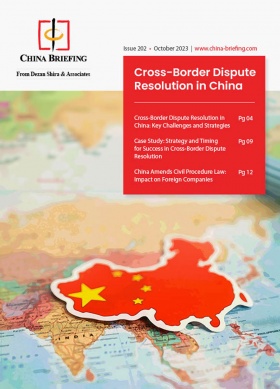China, Japan, South Korea Hope to Restart Trilateral Summit, Possibly Next Year
In a meeting held on Sunday, November 26, in the South Korean port city of Busan, the foreign ministers of China, Japan, and South Korea agreed to enhance cooperation in crucial areas, including security. The three Asian nations are also set to lay the foundation for the first leaders’ summit in four years.
The Asian summit, whose preparations began in September during discussions among the deputy foreign ministers of the involved countries, sought to address Chinese concerns regarding the deepening security ties between Japan, South Korea, and the United States. It also came shortly after the meeting between Chinese President Xi Jinping and US President Joe Biden on the sidelines of the APEC summit in California.
Previously, in 2008, Beijing, Tokyo, and Seoul had committed to annual summits to strengthen diplomatic and economic relations, but various bilateral tensions and the COVID-19 pandemic put a stop to these meets.
Timeframe and key statements
While a timeframe for the proposed restart of the trilateral summit has not been clarified, it will be arranged at the “earliest convenient time”, maybe even next year.
The three ministers reaffirmed … to hold the summit, the pinnacle of the trilateral cooperation system, at the earliest, mutually convenient time. We agreed to expedite the necessary preparations. – South Korean Foreign Minister Park Jin speaking to members of the media
Per a statement from the Japan foreign ministry, the 100-minute meeting saw the three ministers agree to advancing collaboration in six sectors, including security, economy, and technology, as well as promote concrete preparations for resuming the trilateral summit.
In a likely dig at warming security ties between Washington DC, Seoul, and Tokyo, China’s foreign minister Wang Yi said the countries should “oppose ideological demarcation and resist putting regional cooperation into camps”. Yi also warned Seoul not to politicize economic and technology matters amid US-China tensions over semiconductor capabilities and trade exposure.
Geopolitical developments push need for regional talks
Key matters of concern that could necessitate resuming the multilateral dialogue include North Korea’s weapons program and an increased US military presence.
- North Korea
In its most recent act of resistance against UN-led sanctions aimed at its nuclear and missile programs, North Korean state media announced last week that the country had successfully placed a spy satellite, incorporating prohibited ballistic missile technology, into orbit.
Both Japan and South Korea have condemned North Korea’s spy satellite launch and have also agreed to respond strongly to arms deals between Pyongyang and Moscow.
Pyongyang also just released a statement claiming that its Malligyong-1 satellite has captured “detailed” images of the White House, the Pentagon, and US nuclear aircraft carriers, among other key security sites belonging to the US and its allies, which have been viewed by leader Kim Jong-un.
The claims have not been independently verified and North Korea will be looking to extract maximum propaganda value.
- US engagement with the region
Earlier this year, on August 18, South Korean President Yoon Suk Yeol, Japan’s Prime Minister Fumio Kishida, and President Biden held their first three-way summit, marking a small milestone for the Asian countries as they sought to work past history and trade disputes.
The U.S.-Japan-R.O.K standalone summit took place at Camp David. Per a US official statement, the three leaders were set to discuss “trilateral cooperation across the Indo-Pacific and beyond – including to address the continued threat posed by the DPRK [North Korea] and to strengthen ties with ASEAN and the Pacific Islands.”
The meetings involving the United States, Japan, and South Korea resulted in a Statement of Principles and a Joint Statement, committing to regular trilateral annual meetings among leaders, akin to the G7 and NATO leaders’ summits. Additionally, annual trilateral meetings are planned for foreign ministers, defense ministers, national security advisors, and other cabinet-level officials. Collaboration will extend across various domains, encompassing trilateral military exercises, contingency planning, missile defense, economic security, supply chains, emerging technologies, development assistance, and countering disinformation.
About Us
China Briefing is written and produced by Dezan Shira & Associates. The practice assists foreign investors into China and has done so since 1992 through offices in Beijing, Tianjin, Dalian, Qingdao, Shanghai, Hangzhou, Ningbo, Suzhou, Guangzhou, Dongguan, Zhongshan, Shenzhen, and Hong Kong. Please contact the firm for assistance in China at china@dezshira.com.
Dezan Shira & Associates has offices in Vietnam, Indonesia, Singapore, United States, Germany, Italy, India, Dubai (UAE), and Russia, in addition to our trade research facilities along the Belt & Road Initiative. We also have partner firms assisting foreign investors in The Philippines, Malaysia, Thailand, Bangladesh.
- Previous Article A Guide to Accounting and Audit in China 2024 – New Publication from China Briefing
- Next Article Understanding China’s New-Type Industrialization: An Explainer







